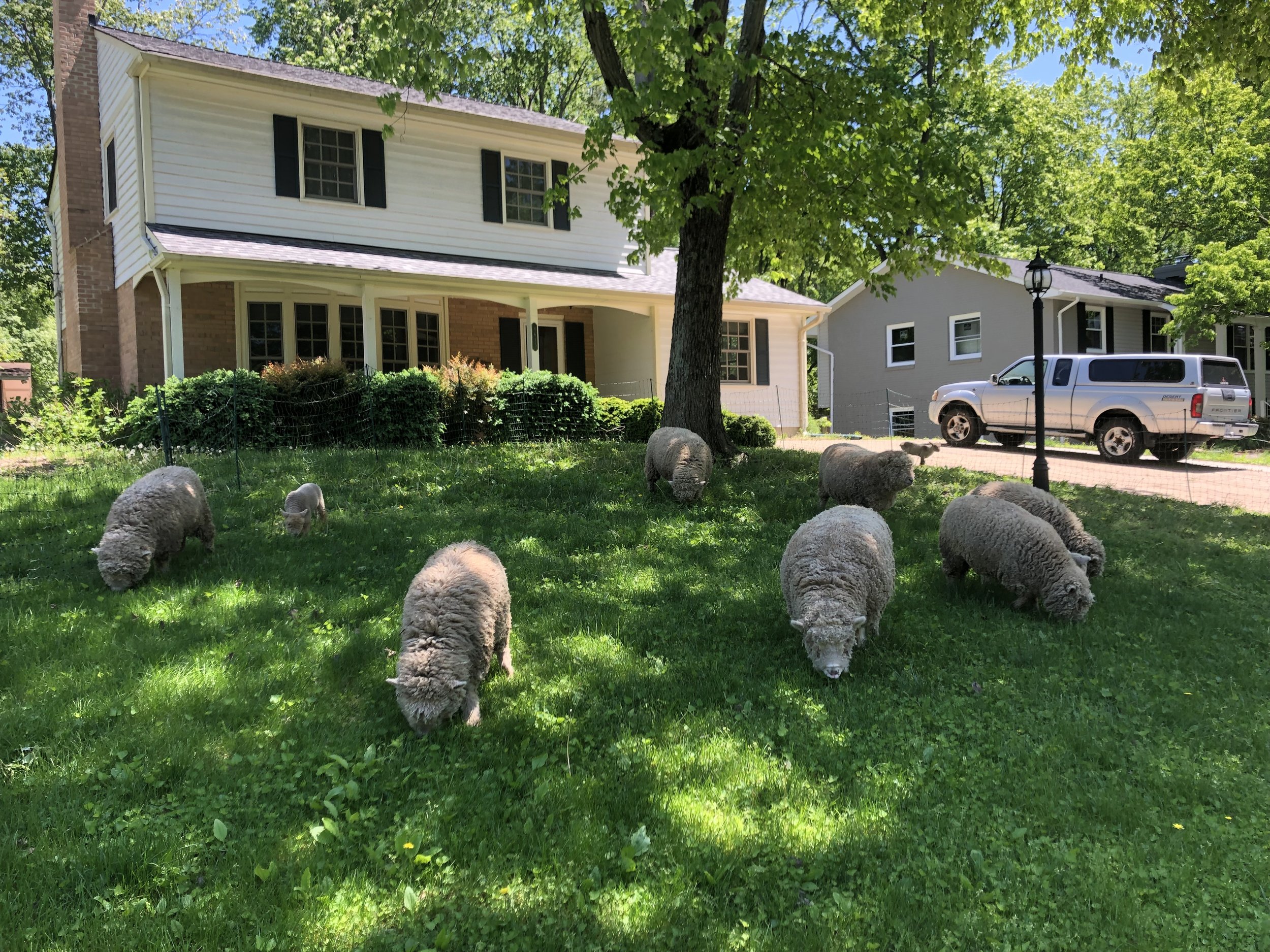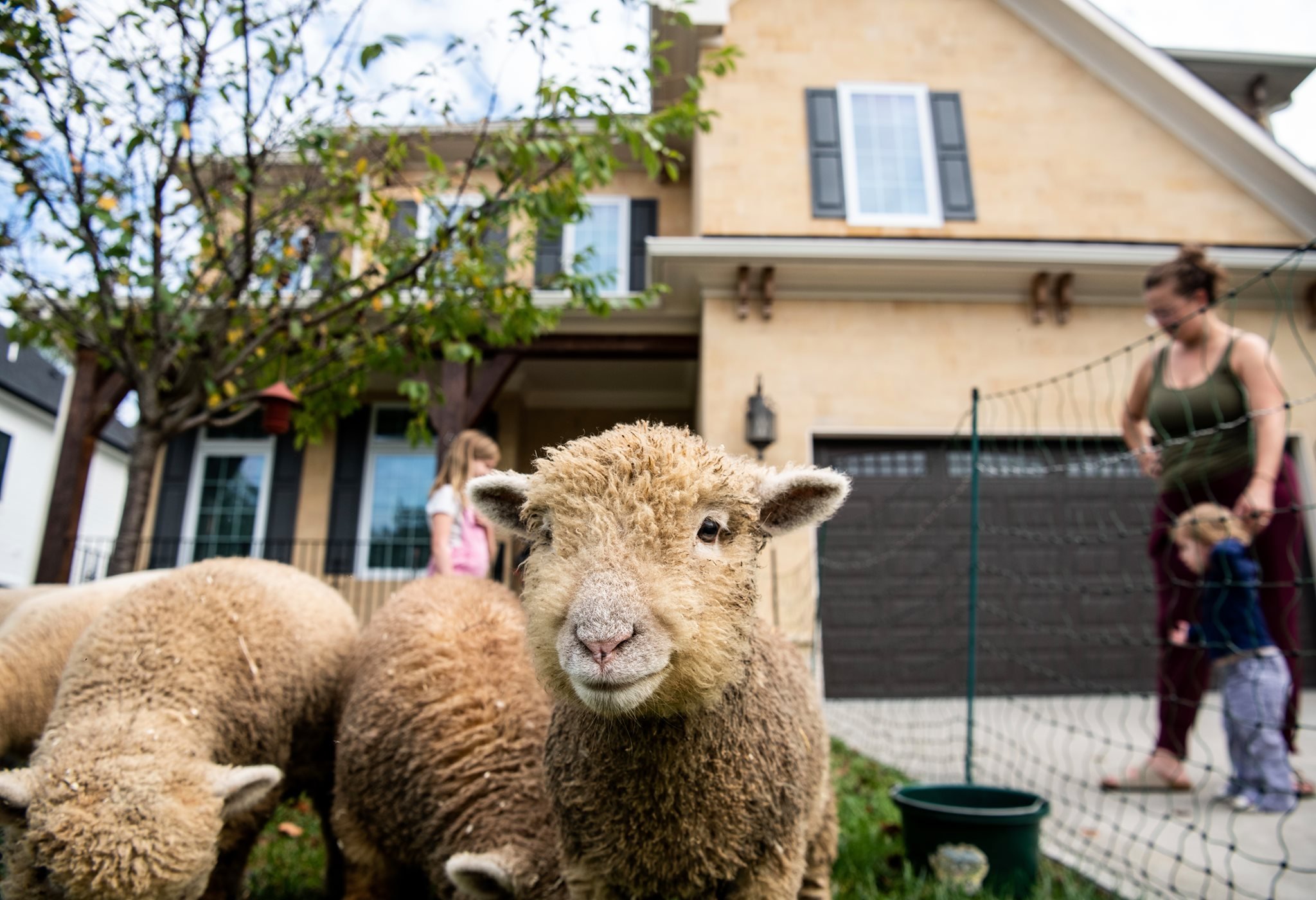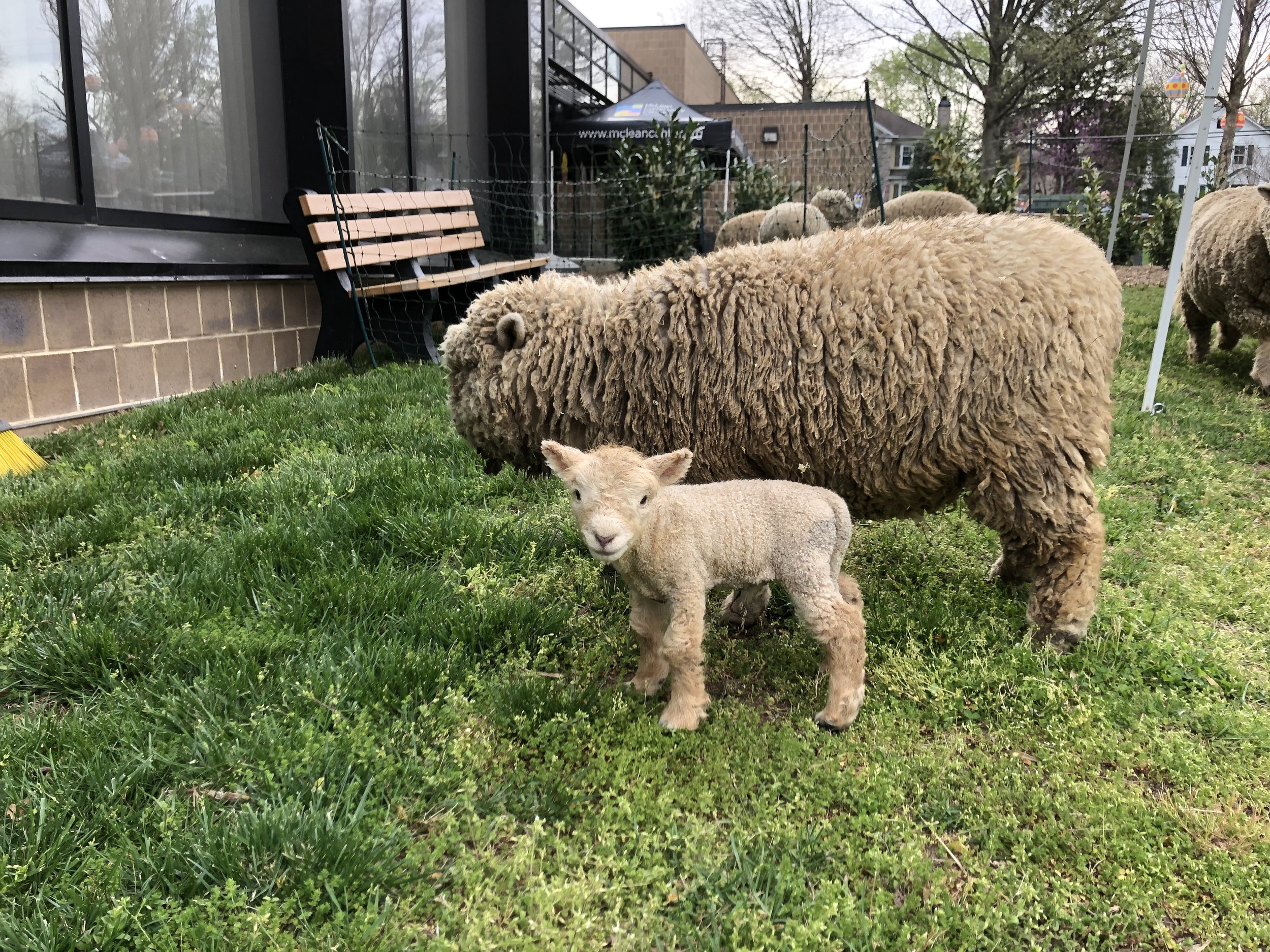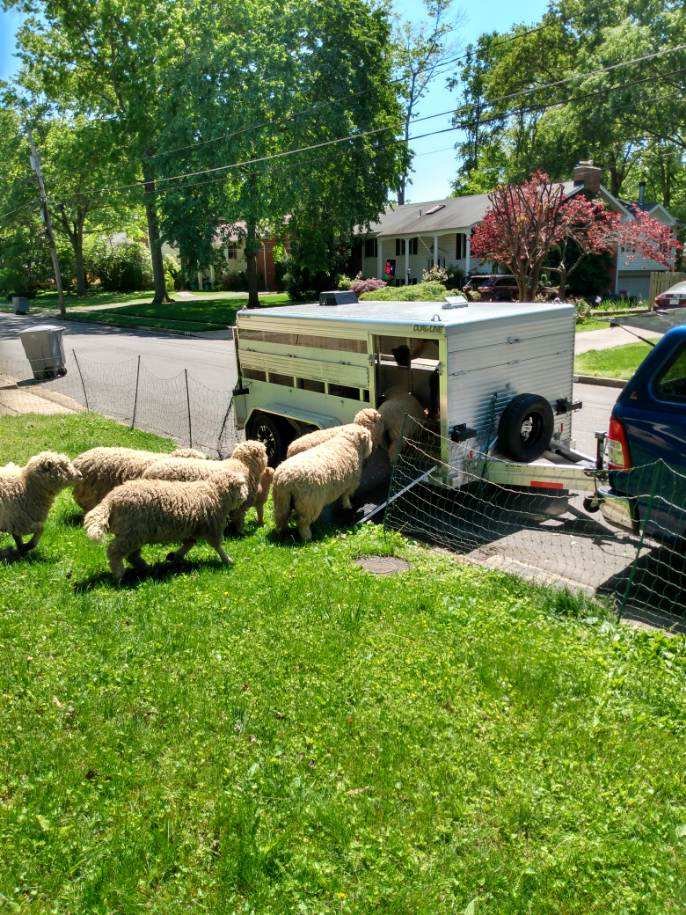
Frequently Asked Questions
Why should sheep mow my lawn?
Perhaps you want to get rid of the weeds in your yard without exposing your kids and pets to the toxic chemicals that are banned in many countries, but are still sold at many US stores. Maybe you just want to re-connect with nature and see your lawn cared for quietly and regeneratively. Rotational grazing of grass improves both the soil health and the health of your lawn, helping sequester more carbon where it belongs - in the soil turning it rich and black.

Am I legally allowed to have livestock on my property?
Lambmowers is currently a business venture of Suter Innovations LLC, a licensed and insured Farifax County business. Fairfax County staff made a zoning use determination that Lambmowers’ service is a landscaping business and is regulated as such. Lambmowers has a business permit to provide lawncare services on any Fairfax County residential, community or commercial property, unless a particular HOA rules otherwise. Arlington also allows our livestock to provide grazing services, and Fairfax City hasn’t specified we can’t bring sheep to residences. If you live outside Fairfax County or Arlington, please verify compliance with local authorities prior to booking our sheep visit lawncare services.

Can your sheep eat English Ivy, bamboo, poison ivy etc?
Our small gentle sheep are almost as adventuresome eaters as goats. They eliminate most young thorny brambles, tree seedlings, herbaceous weeds, and enjoy eating bamboo shoots and onion grass in the spring. Unfortunately, several plants such as yew, and English Ivy are toxic to sheep, so there are definite limits on what we will allow our sheep to eat. When you hire lambmowers, a staff person will stay on site with the sheep and assist in manual weeding to eliminate unwanted invasive plants that are out of reach or toxic to our sheep. Our lambs enjoy eating poison Ivy to eliminate it in unwanted locations year-round.

How do you prevent sheep from eating the plants we want to keep?
Our well-trained and certified staff are environmentalists at heart. We set up temporary fencing to protect wanted plants from potential grazing damage, and make sure that there is ample forage food available so our sheep don’t overgraze the grass you want to keep. We offer supplemental electric-powered weed-eating to give our final product a more manicured look at no extra cost to you.

What should I know to have a beautiful green lawn?
Horticulturalists and ecologists know a secret that most mowing and lawncare companies don’t want you to know. Healthy grass is kept mowed at least three inches in height; a four inch mower height is best to grow a thick green lawn that crowds out weeds. When grass is cut shorter than two or three inches, it doesn’t have enough of a leaf blade to capture sunlight and immediately puts energy into growing tall so you have to mow again. In contrast grass that is mowed at four inches, puts more energy into growing thicker, crowding out weeds and growing deeper roots that reduce watering needs. This mow high approach works so well, that some lawns only need mowed a few times per year. To reduce weeds that the mow high approach doesn’t eliminate, we recommend you hire our company to have our sheep eat the weeds three times per year, OR hand pull weeds before they go to seed.

How well do sheep eliminate weeds?
Many young herbaceous yard weeds are shallow rooted and get eliminated in one grazing. Other weeds such as young tree seedlings are killed by the removal of their leaves and gnawing of the stem. Another category of weeds such as dandelions that have deep tap roots disappear only temporarily after one grazing. Our skilled shepherds help the sheep by manually uprooting some of the most invasive and problematic weeds, but some jobs still require several closely spaced visits to get closer to your desired result. Yards with a lot of our sheep’s favorite foods, such as clover or young Timothy grass tips may not get weeded as much as yards with less sweet grasses. Each yard is different, but our sheep do a good job reducing weeds in most yards.

What should I do to prepare before your sheep arrive?
1) We recommend leaving your lawn at least four inches tall, so that our sheep nibble the sweet tips of your grass without over grazing, as they mostly work on eating the weeds and herbaceous plants out of your yard. Five to six inches of grass height before seed heads form is an ideal buffet for our lambs, but our flock has worked on yards, grass seed heads, and overgrown areas above two feet in height.
2) Please learn how to solve pest issues without poisoning our soil, birds, pollinators, pets and kids who play in yards with pesticides, pre-emergent herbicides and other toxic chemicals. We will not allow our sheep to graze on any plants that have been treated for pests or weeds within the last six months.
3) Our sheep arrive in a fifteen foot long, six foot wide trailer, pulled by a 20 foot long hybrid Ram 1500. Please make sure your driveway OR curb in front of your home has at least 36 feet of open space up to half an hour prior to the scheduled arrival time.
4) Our sheep don’t mind small dogs, large fluffy dogs, or dogs barking that they can’t see. Our sheep may get frightened by dogs that growl or bark aggressively or by other loud or sudden noises. Please be sure to notify any neighbors with large wolf-like or loud dogs that our sheep will do a much better job if their dog is not visible to the sheep. Dogs that show their teeth and bark loudly have sometimes scared our sheep enough to pause their eating.
May I book a sheep visit or landscaping consultation today?
Yes. A phone call, FaceTime or zoom consultation to discuss your unique project is free and can also be scheduled as soon as today.

